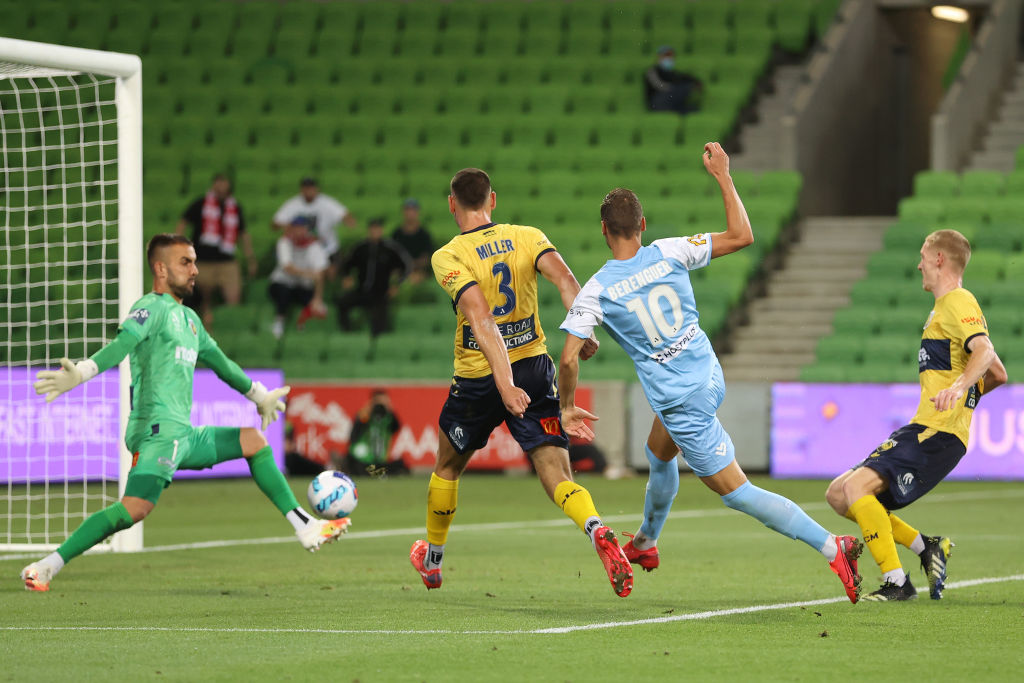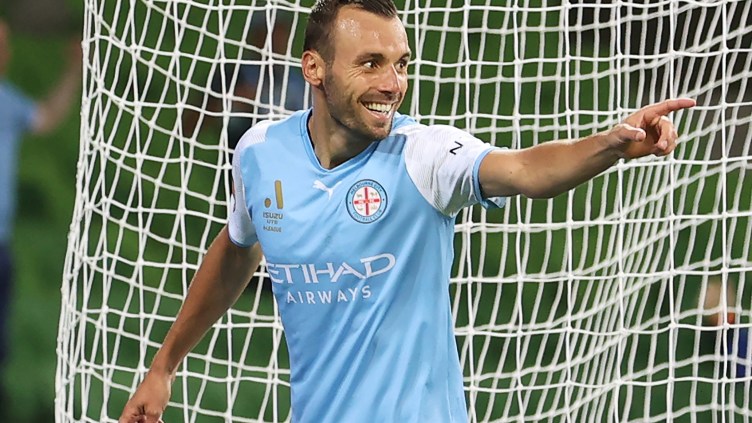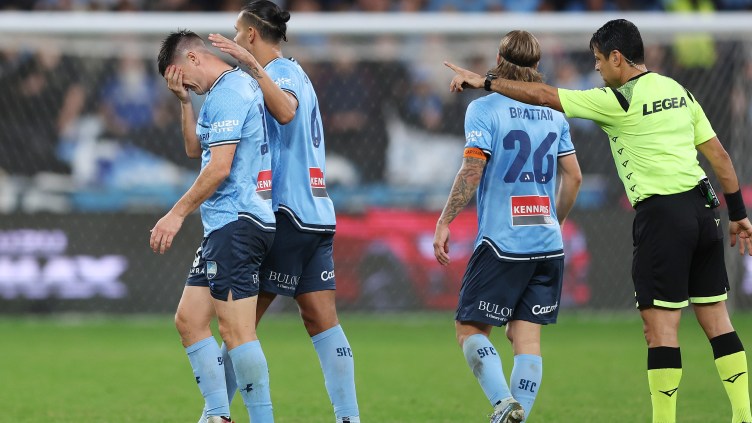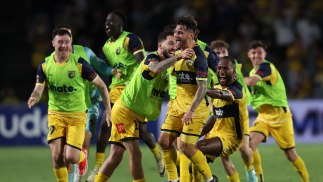Melbourne City’s French playmaker could be the man to make the difference in their semi-final with Adelaide, writes Simon Hill.
Unlike their Spanish or German counterparts, the impact of French players on the A-League has been rather sporadic down the years.
There’s been no “Oui monsieur, oui” moment to rival Isaias’s contribution to securing major silverware, nor Mercedes-Benz quality, the likes of which saw Thomas Broich become a firm favourite – not just with Brisbane Roar supporters, but with fans all over the country.
In fact, to date, there have been only six French players in the seventeen-year history of the competition. Three – Eric Bautheac, William Gallas and Loic Puyo – had relatively brief stays. A fourth, Matthieu Delpierre, marked his two years with Melbourne Victory by securing his place in A-League history, winning a championship in 2015.
This year, Beni N’kololo has upped the ante with some eye-catching performances in his debut season for the Central Coast Mariners.
But it’s Australia’s longest-serving Frenchman that has really stood out, and why Florin Berenguer gets my vote as the Johnny Warren Medalist for 2021/22. His individual skill is one thing, but he helps to make the rest of City’s high-powered forward line look good – the oil in the engine.

Maybe we shouldn’t be surprised, when you consider Berenguer’s pedigree. For nine years from the age of 10 he learnt the finer arts of football at the academy of French club Sochaux – regularly rated among the country’s most productive youth development centres.
Among its alumni are former Barcelona centreback Jeremy Mathieu, former Liverpool forward El-Hadj Diouf, and – playing in the same youth team as Berengeur – the Croatian midfielder Ivan Perisic, who has just had such a fine season for Inter Milan.
After he graduated from the Sochaux youth team, Berenguer was snapped up by then Ligue 2 team Dijon – and a year later, played a key role as Dijon came third and were promoted to the French top flight.
A couple of years later he went back to Sochaux, this time in the first team back in League 2, which is when a scout from the City Group called him and asked if he’d be interested in an overseas adventure: at 29, facing another season in France’s second tier, Berenguer and his wife decided to switch to Australia with their two young children. A long phone chat with Eric Bautheac at Brisbane helped seal the deal.
Berenguer’s first three seasons in Melbourne City blue passed by largely unnoticed. Not because he didn’t contribute – far from it. Berenguer’s brand of easy movement, delicate touch and link-up play always had the hallmarks of quality, but consistency seemed to elude him. His first three seasons produced just four goals.
This year however, that has all changed. Given prime responsibility as the number 10, with Mat Leckie and Andrew Nabbout either side, and Jamie Maclaren at the point of the attack, he has excelled. For Maclaren alone, Berenguer has set up 18 scoring chances, more than any other for a single team-mate in the league.
His five goals and five assists represent a vital contribution, and his presence was sorely missed in the Asian Champions League, where a hamstring injury might just have robbed City of that extra attacking quality to see them through a tight group.
His ability to float into space between the lines have been at the core of City’s Premiership success, and although he missed the first leg of the semi-final against Adelaide United to give that injured hamstring more time to recover, he could yet play a key role as City attempt to go back to back.
The last few years have seen the prestigious Johnny Warren Medal medal awarded to nationals from Mexico & Serbia (jointly), Italy, Poland, Spain, Germany, Argentina and Costa Rica. Perhaps it is the turn of France in 2022.
Il est temps, non?




